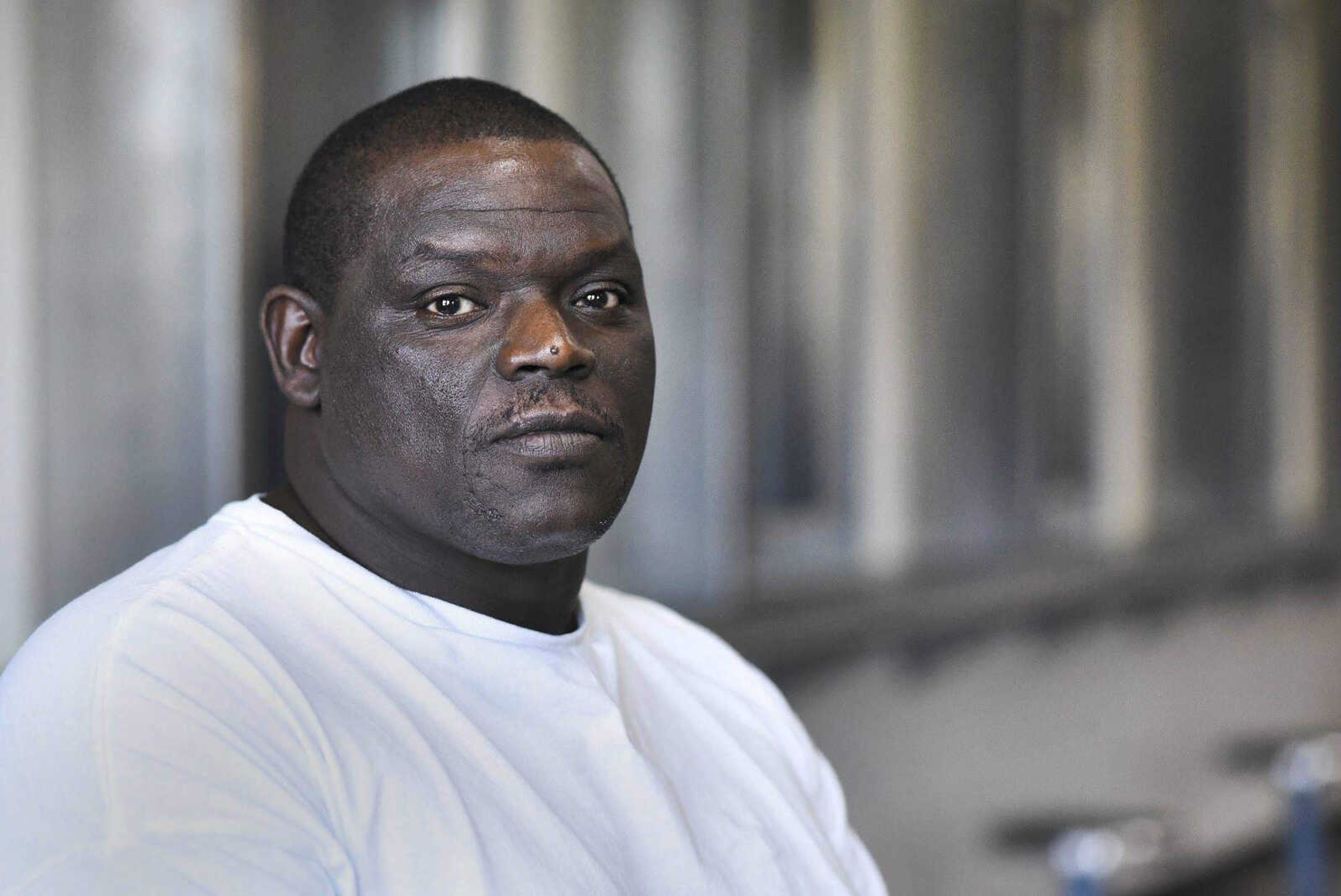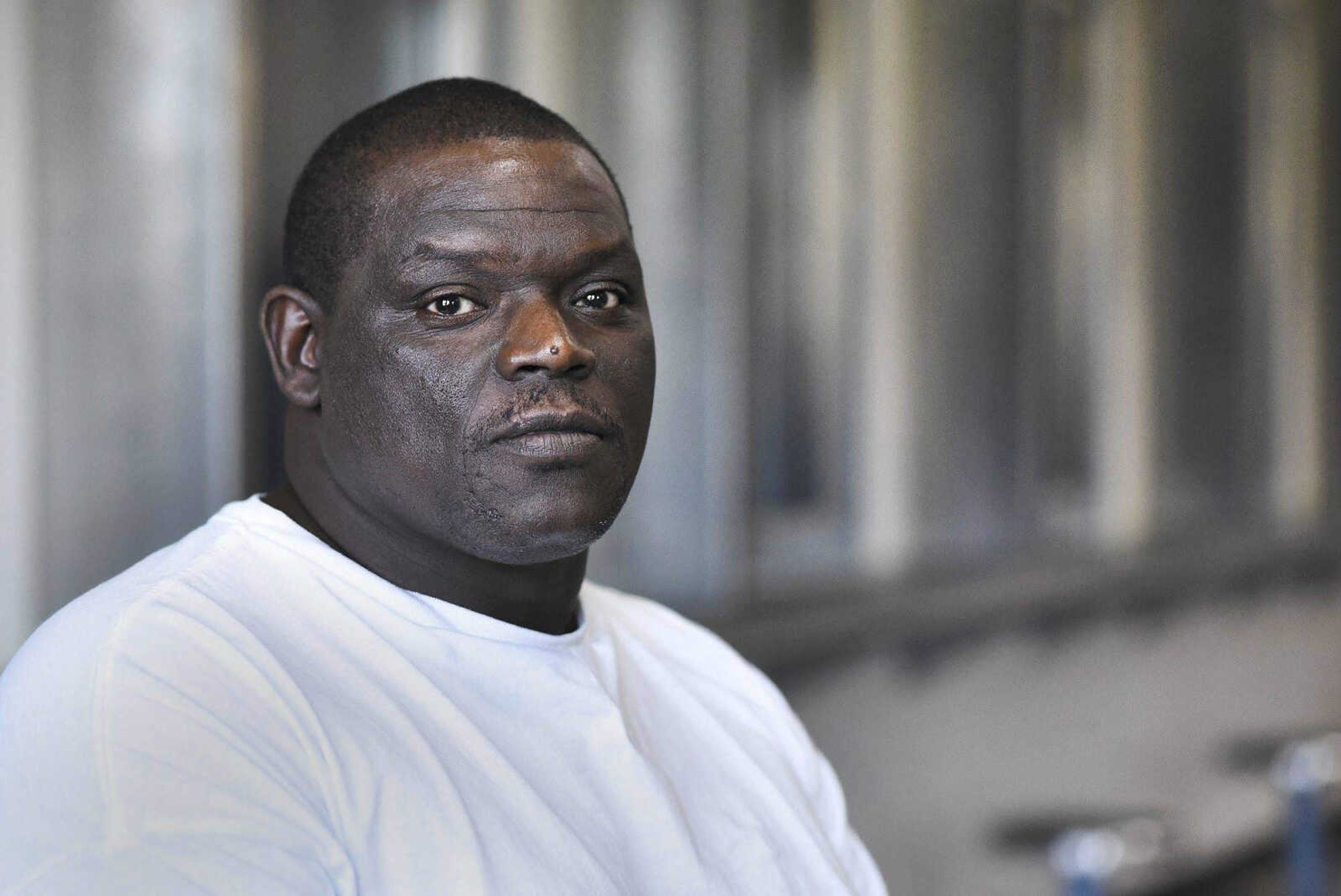Josh Kezer spent 16 years in prison for a murder he did not commit, thanks in large part to jailhouse informants who lied under oath about a "confession" in the murder of Mischelle Lawless in Benton, Missouri.
David Robinson spent 18 years in prison for a murder he did not commit after a jailhouse informant lied about seeing Robinson murder Sheila Box in Sikeston, Missouri.
In February, a St. Louis man, Lamar Johnson, was exonerated after spending 28 years in prison for a murder he did not commit, another unjust conviction due largely to a jailhouse informant who gave false testimony.
All of those informants received or asked for leniency or benefits in exchange for their testimony. None of them have faced any legal consequences. Jailhouse or otherwise incentivized informants are one of the leading causes of wrongful convictions in the United States. The Innocence Project said some 20% of their successful exoneration cases involved jailhouse informants.
Proposed legislation is being considered in the judiciary committee of the Missouri Senate that would put much more scrutiny on informants who are in police or prison custody.


In addition to Senate Bill 489, Kezer, along with his attorneys and other legal professionals, are adding their voices to informant reform in Missouri. Kezer and his team are advocating for more changes in a parallel campaign to SB489.
Removing immunity
Among many of other proposed changes, the bill seeks to remove absolute immunity of prosecutors and qualified immunity of police officers in cases where they fail to disclose certain information regarding the use of informants to the defendant.
Kezer's team is also seeking to add language that would trigger what's known as a "Brady violation" if the state fails to disclose certain details about an informant who testifies against the defendant. A Brady violation is named after a landmark case that requires that all exculpatory evidence is disclosed to the defense. It establishes a constitutional violation when such evidence is not shared with the defendant. A Brady violation results in a new trial. Kezer's team's proposal calls for the removal of the "harmless error rule" in appeals involving tainted informant testimony. The harmless error rule allows judges to deny an appeal if they determine the error was not enough to affect the outcome of the jury's decision.
Kezer and his team also want to see language added that at least encourages prosecutors to seek perjury charges if it's proven an informant lied under oath.
Senate Bill 489 is sponsored by Nick Schroer (R-St. Charles), an attorney who previously specialized in criminal defense. Schroer did not return messages seeking comment.
The bill's language was spurred by activist Michelle Smith, who advocates on several criminal justice issues. Smith said much of the language of the bill spawned from Maurice Davis, an imprisoned man who maintains his innocence and serves as the president of the NAACP chapter in Jefferson City Correctional Center. The NAACP helped Davis craft the bill, introduced in the House last year. The bill uses similar language to laws passed in other states.
The bill would require the state to divulge more information to the defense about jailhouse informants' backgrounds and create a database to track them. The Innocence Project told the Southeast Missourian that four states track informants statewide and three states track them county by county.
Under SB489, the prosecuting or state attorney would be required to keep such a database -- accessible only to prosecuting attorneys throughout the state -- of each case in which an informant has been endorsed by the state, including the substance of the testimony and any benefit requested or offered to the informant.
Additionally, the bill would require certain information to be disclosed within 14 days of the endorsement by the prosecution: the complete criminal history of the informant, including any charges that are pending, reduced or dismissed as part of a plea bargain; the informant cooperation agreement and copy of any deal made; the substance, time and place of any statement given by the defendant to the informant; whether the informant recanted testimony or statement, including the time and place of the recantation and the names of people present at the recantation; and information concerning other criminal cases in any county where the informant testified.
Additionally, the bill states that a pretrial evidentiary hearing must be called in any case where a jailhouse informant is set to testify, requiring a judge to weigh several factors to determine whether the testimony is reliable enough to be heard by a jury. Among the factors to be considered by the judge is whether the informant's statements can be corroborated by other evidence. The bill also addresses potential jury instructions regarding jailhouse informant testimony.
Charles Weiss, who represented Kezer, Robinson and Johnson, but has been working with Kezer to propose changes in the statutes, said he expects that language removing immunity from prosecutors and police in such cases is certainly to meet resistance from the Missouri Association of Prosecuting Attorneys. That may be a difficult political hurdle to overcome, he said. The association did not return messages seeking comment from the Southeast Missourian. Multiple sources interviewed for this story said they don't expect the bill to be a priority of this Legislature. Advocates hope that by raising awareness, lawmakers will be more likely to take up the bill in future sessions.
Local thoughts
Cape Girardeau Prosecuting Attorney Mark Welker said he had concerns about the bill. Welker said his office does not offer incentives to jailed informants as a matter of practice. One of his predecessors, however, Morley Swingle, was the prosecutor who offered deals to multiple jailhouse informants in Kezer's case in 1994. While the case was investigated in Scott County, it was four jailed informants in Cape Girardeau County jail who instigated the case against Kezer, who was more than 300 miles away from the murder scene when Lawless was killed. The deals for those informants remained in place even when two of the informants tried to recant before the trial began. Instead of pulling the deals after these admissions, police told the informants they could face additional charges for obstructing an investigation. One of the informants testified for the defense at the trial.
Welker, who is many years removed from Swingle's methods, said his primary concern about SB489 is over the definition of informant. The bill defines an informant as someone who is or was incarcerated with the suspect, detained by or in the custody of law enforcement and/or provides testimony in exchange for any benefit.
Welker said his office "has recognized the reliability of (incarcerated) witnesses are inherently dangerous" and would not offer incentives to such a witness. However, his office does use informants who are detained by law enforcement. The county, like most law enforcement jurisdictions, uses confidential informants to help them make arrests on other criminals, such as drug dealers. In such incidents, it's common practice for informants to exchange leniency on charges for cooperation with police. Those informants often give leads, but they're not incarcerated, and they don't typically testify in court.
"I do believe that if this bill is passed as written, that it would significantly hamper law enforcement's ability to investigate crimes to the fullest due to the current definition of informant," Welker wrote in an emailed statement.
Scott County Prosecuting Attorney Don Cobb, whose predecessors decades ago went forward with two murder cases hinging almost exclusively on jailhouse informant testimony, said he's not taking a position on SB489.
"I recognize the issue, but law enforcement has to be cautious in the use of any informant," Cobb said. "When an informant is developed, whether it be in custody or out, that credibility issue is always going to be the foremost concern. Why is this person talking to us, what do they have to gain, do they have some type of circumstance with the defendant whereby they may desire to weaponize the court system? All those questions are concerns regardless of the person's current legal posture. ... I'm not too bothered by what the General Assembly chooses to do or how the appellate or supreme court analyzes it; there will always be changes to our system."
Chances of approval
Kezer said he understands SB489 and his and his team's proposals will receive pushback from prosecutors. He notes that it is a bipartisan bill, introduced by a Republican and being pushed by liberal organizations. He also notes that he's been an underdog before.
"My whole drive on this is to find the bridge that we can cross toward the Republican Party and toward the prosecutors, law enforcement and victims that brings us to the same place," Kezer said. "Do I believe prosecutors will put on a strong resistance? Yes, but I don't care. Let's do this. It's the right thing to do. In this country, we have seen time and time and time again that there is prosecutorial misconduct."
Kezer believes strongly that the issue of removing absolute immunity for prosecutors and qualified immunity for officers should remain in the bill. "Absolute immunity gives prosecutors full protection against lawsuits. Qualified immunity gives police police protections, except in specific circumstances. ... How about you just don't violate constitutional rights and you don't have to worry about you losing your immunity? They have taken an oath to protect the Constitution. Violations can be unintentional, but why when they intentionally violate the Constitution should they be protected from accountability to the Constitution? I understand why they would want to be. But why should they be?"
Kezer said the bill will help to add credibility to prosecutors and the overall justice system.
Kezer's case was tried by then-special prosecutor Kenny Hulshof, who was appointed by the Missouri attorney general. Hulshof made false statements in the closing arguments that he knew, or should have known, were untrue. But when it comes to informants, it was then-Scott County Prosecutor Christy Baker-Neel, now deceased, who misled the court. She assisted with the prosecution and stated in court that one of the jailhouse informants from Scott County jail, who was facing a first-degree murder charge, was not offered a deal in exchange for his testimony. Years later, Baker-Neel told a Southeast Missourian reporter that then-Scott County Sheriff Bill Ferrell asked to work a deal for Wade Howard in exchange for testimony in the Lawless murder case against Kezer. Not only was that information not disclosed, it showed that the local prosecutor had given false testimony to the judge. Howard negotiated a deal for a charge of second-degree murder. He was sentenced to 15 years for killing his stepfather, Doye Coffer, with a hunting rifle. He did less time in prison than Kezer, who was exonerated in 2009.
Kezer also wants to see more action taken regarding perjury. Telling the truth under oath is a cornerstone of the judicial system. But criminal defense experts such as Weiss and Sean O'Brien of the University of Missouri-Kansas City, say they're aware of no perjury cases that have followed exonerations in Missouri. Statutes say that perjury in murder cases can result in a Class A felony, which can draw up to a life sentence. Kezer and his team of attorneys want language added that would strongly encourage the pursuit of perjury cases.
Kezer has spent many hours speaking with state legislators about changes to informant policy. He said it's obvious to most that reform would have the end result of preventing wrongful convictions like the one he endured, but ultimately it helps victims of crimes, too. He said wrongful convictions take a huge toll on families of victims. Victims' families have to relive the details of the crime all over again, plus deal with the emotions of whatever anger or resentment they once held for the person they believed to be guilty. Meanwhile, in most cases of exonerations, the investigation into the murder stops for more than a decade, meaning potential witnesses die, trails go cold and memories of events evaporate.
Another supporter
Lamar Johnson, 49, exonerated in February, has put his voice behind informant reform. In an op-ed posted in the St. Louis Post-Dispatch last month, Johnson wrote that 10 people from Missouri have been wrongfully convicted of murder since 1983 because of false jailhouse informant testimony.
In Johnson's case, which occurred in 1995, a jailhouse informant said he overheard Johnson discussing the murder in prison.
"That was a lie," Johnson wrote. "He told police and the jury that I was yelling out this information to a 'Lamont', but jail records proved there was not a 'Lamont' in the jail."
An investigation into informant William Mock discovered that he had been an informant before in Jackson County. Court records from Johnson's exoneration say the prosecution failed to disclose the full extent of the promises made to Mock, who'd asked for a pardon from the governor or at least a reduction in sentence and a transfer out of prison in exchange for his testimony. Additional correspondence between Mock and the circuit attorney's office was not disclosed to the defense.
The state fought against Johnson on appeal, even though the two men who committed the murder repeatedly confessed.
"Everyone is denied justice when someone is wrongfully convicted based on unreliable jailhouse witness testimony," Johnson wrote. "Without proper protections in place, the use of jailhouse informants will continue to send innocent people to prison and victims of crimes will continue to wait for true accountability.
"Other states, like Nebraska, have already adopted similar measures, and our neighbors in Kansas have passed a similar bill through their House. Missouri should be next."
SB489 would have made such information about the informant's criminal and informant history available before trial, and might have made a difference in his conviction, he said.
"If the idea is to make sure you convict the guilty and don't convict the innocent, something needs to be done," Weiss said. "The issue is so misused in the system. There could be a snitch that has real truthful information, but it's so easy for a snitch to come forward and get some leniency or a transfer to a better jail."
Connect with the Southeast Missourian Newsroom:
For corrections to this story or other insights for the editor, click here. To submit a letter to the editor, click here. To learn about the Southeast Missourian’s AI Policy, click here.











